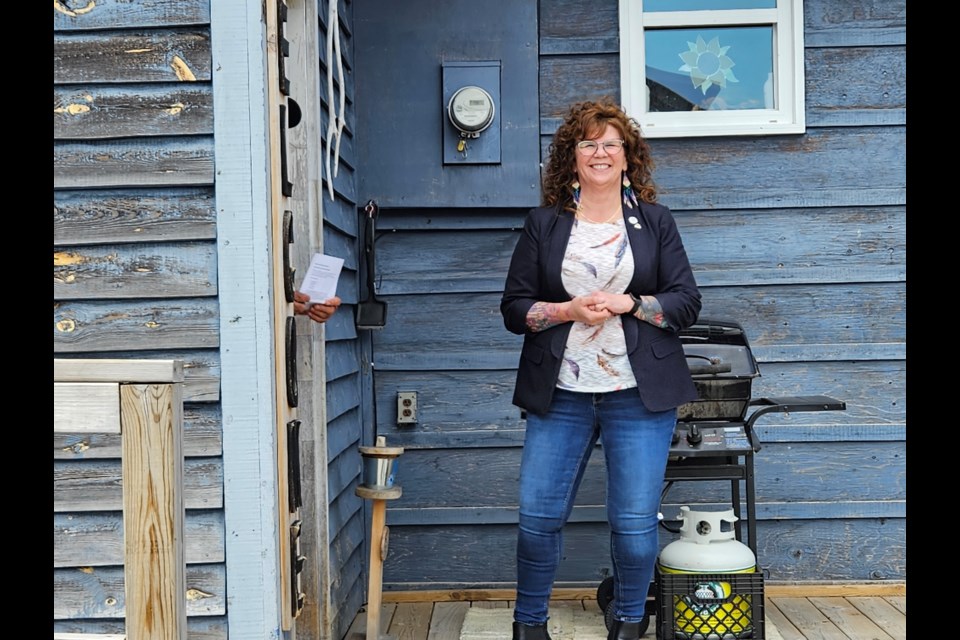FORT WILLIAM FIRST NATION — Fort William First Nation voters will cast their ballots for the next chief and council in two weeks.
The community is set to hold their election on May 27, after an error in the nomination process earlier this year resulted in a restart of the process.
Two women — Michele Solomon and Georjann Morriseau — are vying to replace former chief Peter Collins, who stepped down last year.
Solomon has served on the First Nation's council since 2015.
This interview was lightly edited for brevity and clarity.
TBnewswatch: Why are you running for chief?
Michele Solomon: I decided to accept the nomination for Chief because I felt like it was really the most natural next step for me having been in the position of council member for Fort William First Nation for the last eight years. I feel like my experience and the work that I've done with the council just seems like a good next step. And I feel like I'm ready for this in my life.
TBnewswatch: What are your goals that you want to achieve if you are elected?
Solomon: If elected, I think the first item of business for me as a chief would be to really work with the councillors that are at the table to establish some good working relationships and then start working with the administration and the community to identify some priorities that they have for the community. I think that the community needs an opportunity to share those things with the leadership and having been in a pandemic for the last you know, two and a half to three years, it really limited the amount of dialogue that we've had with community and tough question.
TBnewswatch: How do you stand out or how do you plan to stand out against Georjann Morriseau?
Solomon: I think at the end of the day, it's really up to the people who they think is the best person to be in this position of chief for the community. At the same time, I have been a committed and reliable member of council for the last eight years. I've lived in this community all of my life and so I'm really in touch with the needs in the community. You know, a lot of the ways that we're trying to reclaim in the community I think those all lend to why I would be a good fit in this role.
TBnewswatch: The current issue coming up regarding the dogs at large, how would you be planning to address that?
Solomon: Certainly dogs at large has been a long standing issue. It's an issue that came to the table in the last term. It's an issue that we were not able to resolve and that mainly being that it's one thing to impose bylaws, but it's another thing to have all the other mechanisms in place that support the bylaws. So having a shelter to place dogs and things like that. We don't have that infrastructure here at Fort William First Nation, but it's something that the administrative team is working on this. And so there is a plan that needs to continue to be worked until we can find all the resources to support it. But it is a very important issue to everybody that has sat at that table historically and something that is a high priority for me as well. I'm afraid of dogs.
TBnewswatch: What are some of the goals you have in mind when it comes to economic development of Fort William First Nation?
Solomon: Fort William First Nation has always been interested in economic development ventures. And I think that's where the community dialogue really needs to happen is for the community to have some input into what types of economic ventures do they see as a priority for us. Economic ventures that you provide employment that any member could attain employment in is what's most important. Economic ventures that you know don't provide jobs that are out of reach for the average person.
TBnewswatch: Do you think you would provide a different perspective if elected as Chief coming into the role as a woman, compared to men that have previously filled the role?
Solomon: I think for sure, being a woman, I do have a different perspective than a man does. Being a mother and a grandmother, I certainly bring a unique perspective in that way that is different from men. But I think also what I bring that is different is a social work background that I don't know that any of the previous male leaders have, have had that social work background because the well-being of the community is really at the core of any work that we do women's rights among First Nations communities.
